Humanitarian Heroes
This World Humanitarian Day, meet some of our humanitarian workers who share their inspiring stories.
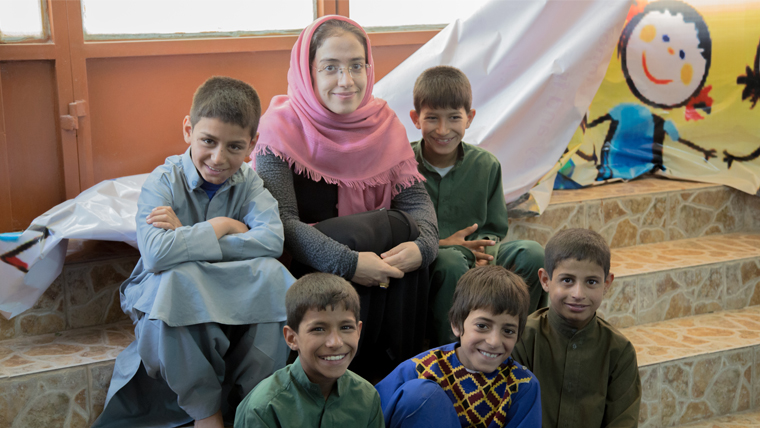
Narges Ghafary is World Vision Afghanistan’s Communications officer.
"I joined World Vision Afghanistan in 2010. Since 2012, I have been working as a Communications Officer.
I love going to the field, sitting and talking with communities who are in need. Sometime you see or hear something that you can't tell them verbally because you are so moved by what you have seen that you feel choked up. Then you prefer to struggle with them when you are alone, when you are in bed or when you are walking.
For me, working as a communicator and an aid worker is a privilege, an honour and an enjoyment; it allows me to give voice to what I hear or see about children, the innocent and wronged - their pains, their fear and also the funny things.
One of my work challenges is that due to cultural norms, women don’t like to be in the photos and video so I rarely can take a photo of a woman either individually or with her family.
My favorite part of my job is that I can travel to the field and can see the real life and challenges of the people.”
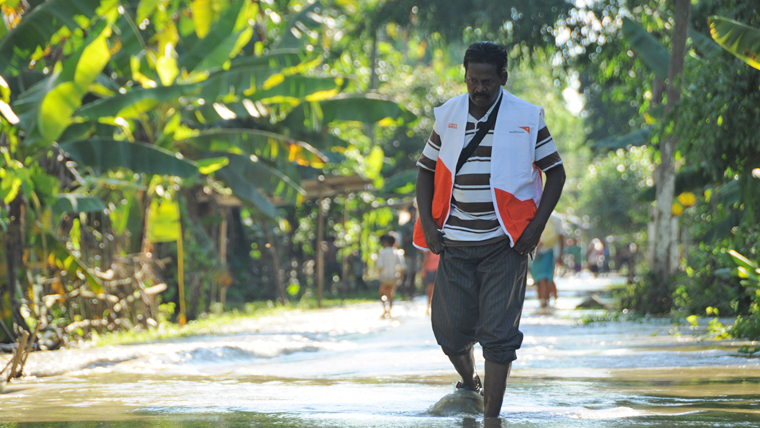
"My name is C.H.Alexander. I've been with World Vision India for the past 30 years. I joined in the 1983 as a grassroots worker taking care of child care and community development projects and since then served in various capacities these past 30 years. At present, I serve as Senior Manager-Emergency Relief, World Vision India.
I come from a very remote village in Andhra Pradesh, India. My family lived in a small house built with mud walls a thatched roof held by bamboo frames. In the November of 1977, there was a severe cyclone. My village, which did not have electricity, no proper roads, no communications facilities, and no health facilities faced the brunt of the cyclone winds that brought heavy rains and flooding. As the flood waters rose, my father asked us to climb the roof and hold onto the bamboo frames. After about 10 hours of holding tightly, the bamboo frame of our roof, we survived the wind, rains and flood. Except for the clothes we were wearing, we lost everything else. Our family took shelter by the roadside and for the next three months we lived only on the food and clothes that aid agencies and other organisations provided.
That experience as a teenager is probably my primary driving force to work as an emergency relief worker. I know firsthand what it is to be affected by a disaster. I have been there. As an amergency relief worker, I am always ready to move to any locations within 24 hours. In the responses that I have served in so far, I have travelled by boats, climbed mountains, walked for miles together and travelled some of the most dangerous roads to reach the most affected villages. It gives me immense satisfaction to be able to help children and communities when need help the most.
In my present role, I specialise in logistics and distribution management during a response. Working with people from different countries, cultures and languages can sometimes be a challenge, but overall I find great satisfaction in my work. I think I was always meant to be an emergency relief worker."
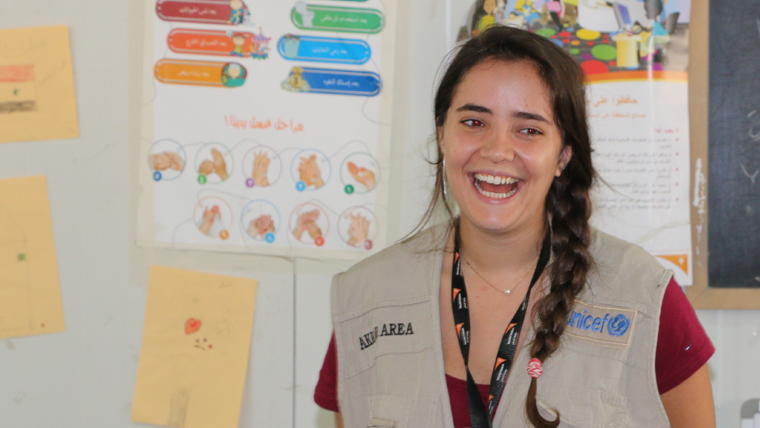
"My name is Lea Chebli, I am 22 years old and I am a psycho-social support facilitator in World Vision Lebanon.
I joined World Vision exactly a year ago to give technical assistance for animators in the child friendly spaces.
World Vision has very high working standards and allocates a lot of importance to psycho-social support to children. In our child friendly spaces, children come to play, sing, dance, make friends, have snacks, and express themselves through drawing and storytelling.
I often work with children who have been forced into labor. Children aged between 6 and 12 years old, waking up as early as 5 am every day, to go pick up potatoes for 12 hours or more and make few dollars. Violence is normalized in the lives of these children; it is their only means of communication. The employer is violent, parents are violent, siblings and neighbors are violent, children themselves respond to any situation with violence.
Here, in these friendly spaces, together with the children we put ground rules, we learn how to behave in a group, how to share resources, how to communicate without resorting to violence.
The most challenging part of my job is to establish a relationship of trust between me and a child. Once a child trusts you, he/she will open up and start expression his/her emotions, concerns, fears and relationships with other children.
My favorite part of the job is when I see a glimpse of change in the lives of these children."
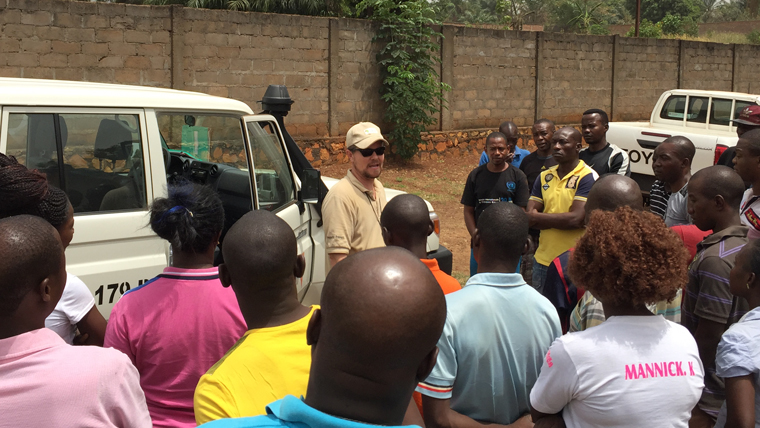
"My name is Benjamin York and I live in Dakar, Senegal, with my family. I have been serving with World Vision for nearly four years, my current role is the Regional Security Director for the West Africa Region.
In general, my job is about helping our staff and the leadership to better understand the work environment and context where World Vision operates, so that they can make informed decisions about their personal safety and better ensure the success of World Vision work in West Africa.
I have loved serving in my current role as I have experienced how God can use past life experiences to prepare us for future tasks.
As a child growing up in Cote d’Ivoire, God placed in my heart a passion for the West Africa region. Later in life, God allowed me the opportunity to serve in the U.S. Army and on projects for the U.S. Department of Defense. Fast forward to present, and God has brought together those previous life experiences in a role that combines my passion for the West Africa region and its people, with my understanding of developing a culture of safety and security for World Vision staff.
Perhaps, one of the most challenging elements in my current role is creating a sense of urgency to prepare for work in the volatile contexts where World Vision operates, without generating unnecessary fear among staff.
After seven years of serving in the US Army, I left the military in 2010 fully expecting my experiences in the military to be a part of my past that would only minimally connect with future job roles … especially roles in the humanitarian aid and relief sector. However, today my current role takes me back to military installations where I help to lead safety training for our staff. Additionally, I interact often with military personnel and prepare contingency plans around possible military engagements in certain contexts. Though I no longer wear the military uniform, I sometimes feel as if I never left!"
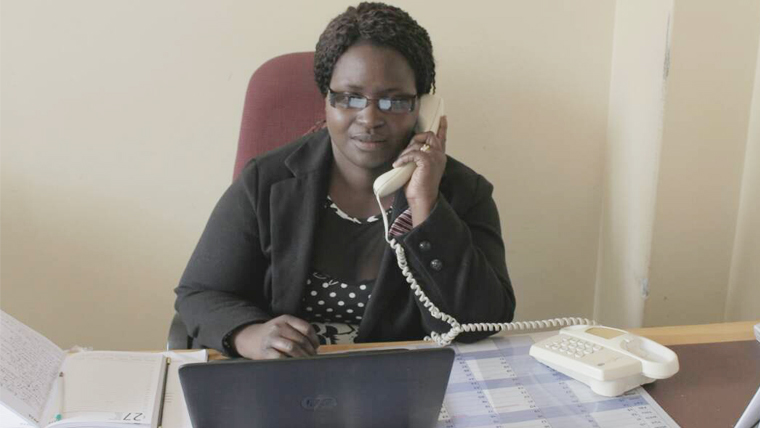
Memory Sibanda is the IGATE District Coordinator for Mangwe District of Matabeleland South Province in Zimbabwe.
"I look back at my life and realize how much I have accomplished in the last 17 years working with and for children through World Vision. My heart bleeds for children, pillars of future economies. They need education to emerge better and accountable leaders of tomorrow. I have created access to education for thousands of children. The only way to emancipate families from the jaws of poverty is to educate children."
The Mangwe District is characterized by chronic food shortages due to its low annual rainfall making cropping impossible. Grazing pastures are poor. Incidences of poverty are high and most of the households are female headed. On the education backdrop, the district has more primary than secondary schools with boys dominating at primary level and girls at secondary schools. Distances travelled by students to schools remain a challenge, though with a programme such as IGATE, some students have received bicycles, reducing the time they take to get to school.
My job entails working in and with communities where I bring together stakeholders to promote girl’s education. We work closely with project partners that include line ministries and communities to contribute to the sustained wellbeing of the most vulnerable children. All our interventions are aimed at benefiting children.
I am motivated to work for children by the zeal to make significant impact in the lives of children. I am committed and passionate about children’s rights, I dedicate my time towards improving their wellbeing, especially the vulnerable and marginalised girls making sure they have a right foundation to kick start their lives into adult hood. My desire is to see all children accorded equal opportunities to be in school, learn and complete the full cycle of education and realise a bright future.
You educate a girl you empower a nation. The best gift a child can ever receive is education.
There are several aspects of my job that I like with the best being to see change transforming society and taking place in the lives of children through our project and organisation’s interventions. I would want to see children fully participating in development issues."
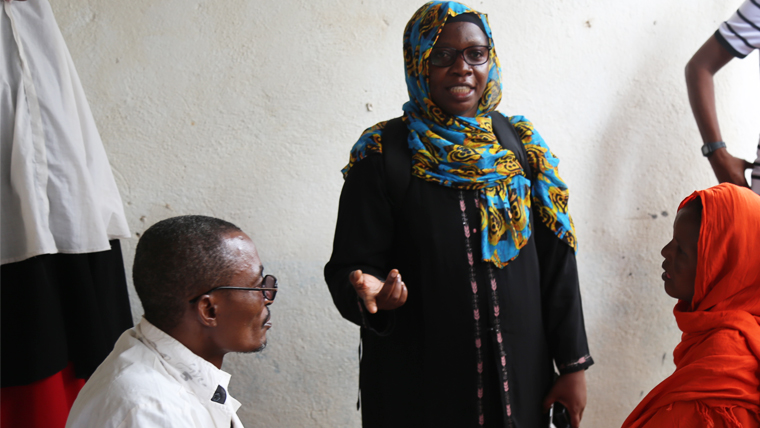
Florence Obura is a Health and Nutrition Manager in Somalia.
"I have been with World Vision in Somalia since October 2014. My job entails designing context appropriate public health interventions in South Central Somalia and then mobilizing resources for these interventions.
I have had a passion and commitment for maternal and child health since I was young, having been raised by a nurse (my mum) in a rural setting with limited resources. It broke my heart each time a child or woman died from pregnancy related issues that I later learnt are preventable.
I am an aid worker because I appreciate the plight of vulnerable women, children and their families in difficult situations. I have a personal commitment to do all I can within my power to transform lives one woman, one child at a time.
Language barriers which make it difficult for me to communicate directly with my clients is the most challenging part of my job. There are times I would love to share personal experiences and listen to their stories without an interpreter in between, but that isn't possible since I understand very little Somali.
People find it strange, but I love my job in this difficult context. I love the fact that I talk to fellow women and empower them on how to take care of themselves and their families during pregnancy. I love to see the smiles on their faces after they have had an event free pregnancy, which in most cases, is a different experience from previous episodes where they had no support."